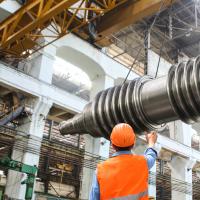How AI and Machine Learning Are Revolutionizing the Manufacturing Industry

Manufacturing is one of the largest industries in the world. The majority of manufacturing tasks used to be manual up until the Industrial Revolution, when the introduction of machines facilitated work. We’re now experiencing the same thing again but with technology making a lot of processes easier, faster, and more efficient.
Machine learning is one of these technologies. Through artificial intelligence, machine learning algorithms “learn” from experiences, allowing automated processes to improve and adopt the changes necessary for better results.
In the manufacturing industry, one of the biggest issues is the unexpected downtime of machines. One machine going down meant wasted hours for the factory. Machine learning stepped in to monitor production phases, focusing on inbound supplier quality through manufacturing scheduling and showing every process from gathering material to fulfillment. Using machine learning to track the health status of each machine alerts factories of possible failures and predicts how often and how long it will take to perform maintenance. This minimizes unplanned machinery downtime, increases production throughput, and reduces maintenance costs.
Optimizing inventory is also a challenge for the manufacturing industry. Machine learning can help in calculating when a factory should hold onto or sell inventory. It also helps the administration make decisions regarding an increase or decrease in the production of inventory. These suggestions are provided by the machine learning engine after monitoring the basic supply chain elements, market prices, holding costs, and overall production capacity of the factory.
Manufacturers using large-scale machinery are also adopting the use of machine learning algorithms to improve throughput and sustainability and decrease energy consumption and rates. Manufacturing always involves tasks that need to be executed the same way over and over, and AI merged with machine learning can automate these tasks, providing consistency and precision. Moreover, it empowers the machinery to run in auto-pilot mode without the need of a person just to turn it on and off.
Even though machines are now essential for the manufacturing industry, humans remain the biggest asset. Machine learning can help there, too. AI-based platforms that rely on a series of unsupervised and supervised machine learning algorithms can match each job candidate’s unique set of capabilities, strengths, skills, and experience with the tasks and duties at hand. This helps factories recruit and retain a qualified workforce, as well as utilize every person to the best of their talents.
The use of machine learning algorithms and applications is on the way toward revolutionizing business models of the manufacturing industry by monitoring the overall journey, quality, and health of its assembly process while optimizing operations. It’s empowering the manufacturing industry to perform better day by day, cut costs, increase revenue, and make processes smoother, and there are still more advancements to come.

